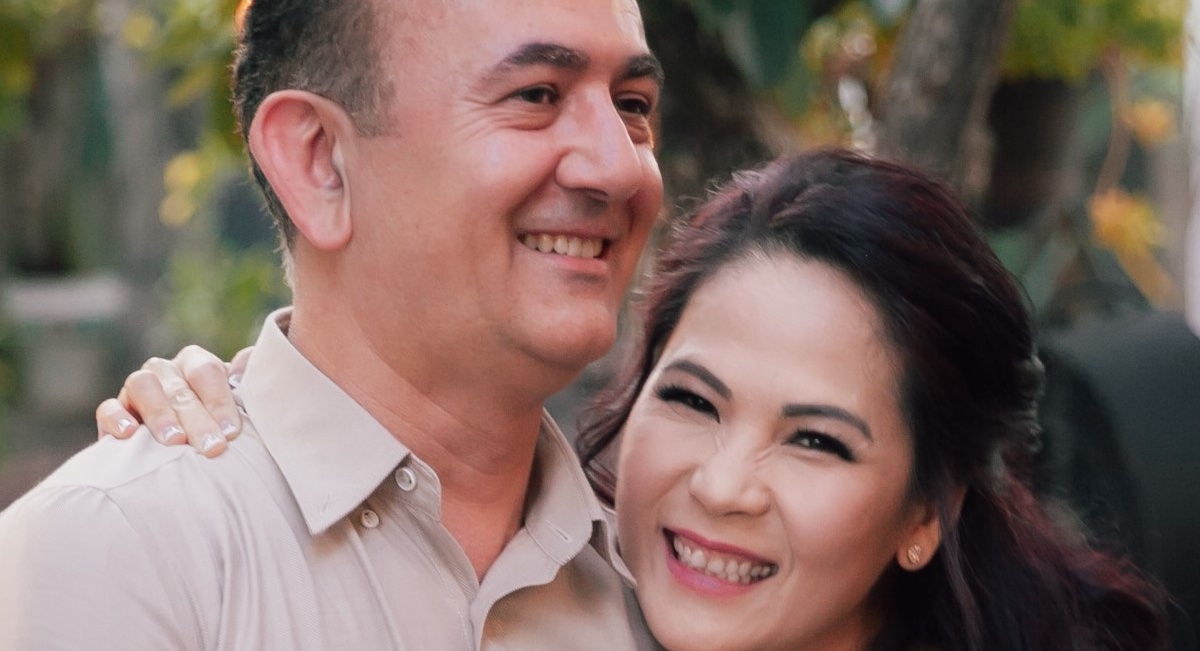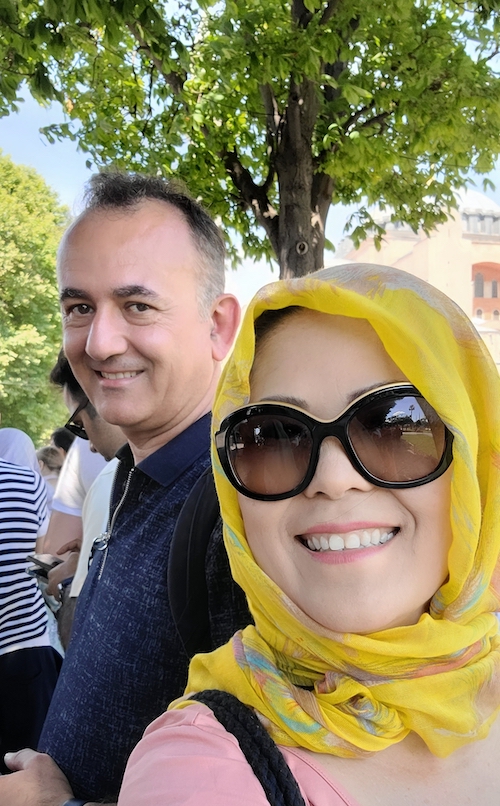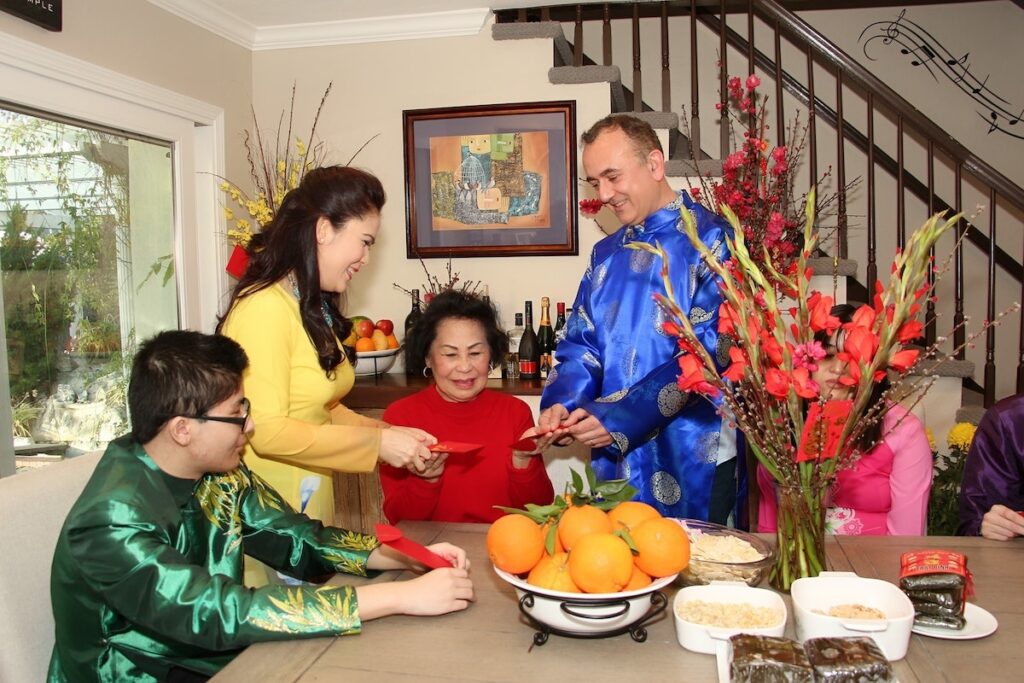By Nancy Tran | Radio TNT
How did you meet?
Eric: In 2018, my wife and I met each other through the internet. About seven months later, we got married.
What attracted you to each other?
Tu Minh: When we first met, we immediately fell in love thanks to our similar educational background, personality and especially the same political and social views.
Tell us a little more about your background.
Tu Minh: I was born in Saigon. My father is from the North and my mother from the South. When I was a child, I was exposed to two different regional cultures, so I got used to differences in language and family behavior. My father’s side was connected to the royal family and there was always a tendency to look down on my maternal side. But since childhood I always spoke up and resisted discrimination and class divisions. When I was 18, we arrived in the Bataan refugee camp in the Philippines, then settled in California.
In San Jose, I graduated from Yerba Buena High School. After studying, working, having two marriages and three children, I went to San Jose State and got a Bachelor’s degree in business administration/accounting. I am now a financial analyst for a local technology company. My eldest daughter graduated from marketing school, married a white American husband and has a 9-month-old son. My middle daughter is about to graduate in psychology. The youngest son is about to finish high school.
My husband was born in Turkey where he graduated with a Bachelor’s degree in Engineering and then followed his sister by moving to the Bay Area where he planned to go to graduate school. Instead, he obtained a two year degree in Business Administration while working as a bartender for many restaurants. He now co-owns two French-Italian restaurants in Mountain View and Walnut Creek. He divorced when his daughter was about two years old. Now she is about to finish high school.
What were your concerns when you decided to marry?
Tu Minh: What worried me was the language difference with my in-laws because they are not fluent in English. So I decided to go to Turkey. As long as the couple love and respect each other, anything can be solved. Now everything is fine.
How did your parents and family members react to your marriage?
Tu Minh: My husband’s family loves me and my family loves my husband. At the time of our marriage, my husband’s daughter was 12 and she was afraid of losing part of her father’s love. She lived with her mom. She often stayed with us. Today we travel to Turkey together as a family very happily.
What makes your marriage work?
Erik: We have all experienced marriage breakdowns so we have learned. If there is a problem, we must have open communication to solve it together and always put mutual trust and respect on top.
Having lived together for more than five years, my wife and I have never had a fight and consider each other as lovers even though we are husband and wife.
What are your cultural differences?
Tu Minh: When living with my husband’s family, I choose which Turkish dishes I can eat, practice their favorite games, figure out what to do when my friends and family come to visit. My husband does the same when he meets my family and friends. They always feel comfortable when eating, playing and talking in Vietnamese. Except for religion, the family culture of Vietnamese and Turkish people is similar – they both originate in Asia.
What about religion?
Tu Minh: My husband’s family is Muslim but my husband is not religious at all. When I proposed to have a Buddhist ceremony for our wedding, my husband’s family did not object. In the house, I have a Buddhist altar where I can have a place to meditate and listen to the Dharma. My husband practices the principle of ‘happy wife, happy life.’
What about food?
Tu Minh: My husband is at a restaurant all day and rarely eats at home. I used to cook Vietnamese-style salty food but he doesn’t like fish sauce. Lately he eats vegetarian food that I cook or he orders Sushi.
Erik: When my wife went to Turkey she made rice for the whole family to eat three times a day. When I was busy with work, she brought rice, tea and cake to my room.
When you listen to people talk about race relations, do you have any advice for them?
Erik: My wife conveys positive experiences about getting married with people of different races as evidenced by her happier life, and a daughter who is happily involved with a White boyfriend and another daughter who is also very happy with her Chinese boyfriend.
To have a good relationship with anyone, no matter what their background, we need to treat each other with fairness, understanding, sympathy, care and respect.
The latest Census shows the multiracial population has grown to 33.8 million, a 276% increase over 2010. What do you think about this?
Erik: We live in a modern and multi-ethnic age. The more people know how to integrate with different cultures, the more advanced and peaceful society will be.
Having experienced two failed marriages with people of the same ethnicity, and now very happy with a multi-racial marriage, we can conclude one thing: to have happiness in marriage, husband and wife do not necessarily have to speak the same language and share the same culture. It is important that both of them really love each other sincerely, match each other in terms of personality and thinking, and behave civilly in family and society, always giving each other respect. If there are differences to reconcile, they must compromise to give the other party freedom – such as to keep one’s own religion.







